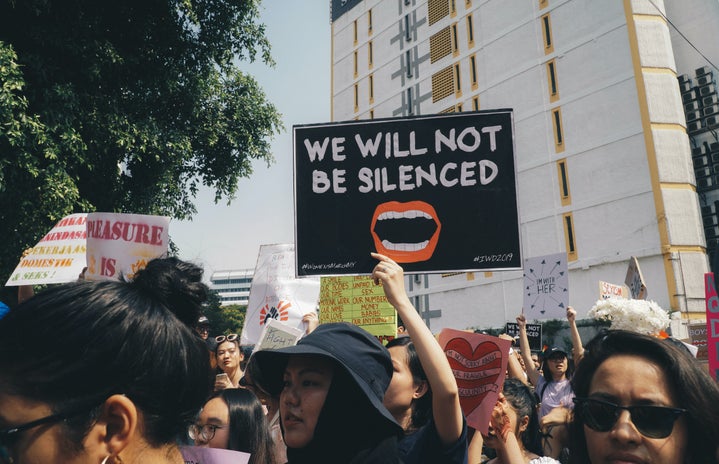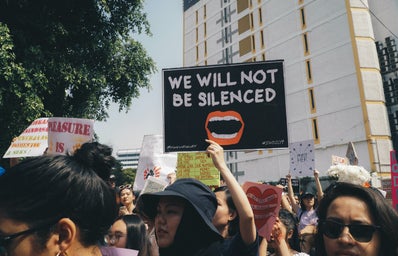TW: This article discusses sexual assault and rape.
Recently, Coastal Carolina University students put together a rally/protest in support of sexual assault survivors, and to put forth demands for change in and around campus. Some of the demands supported by protesters are better lighting, cameras that actually work, and furthering education and transparency, to name a few. People shared their personal stories, grievances, and hopes for the future. One of the common threads between speakers was issues with public safety.
Survivors of assault are not very likely to report their incidences to law enforcement, and this is for various reasons. Especially for people of color and LGBTQ+ folks, reporting to the police is not something that is necessarily safe or viable.
Out of every 1,000 sexual assaults, only 310 are reported. This means 2 out of 3 go unreported. Only 20% of college-aged women report their sexual assault. For many reasons, reporting does not happen, including, fear of receiving further harm from the perpetrator, being victim-blamed, believing the police won’t do anything, and even feeling like their incident is not important enough to report. RAINN says that 23.1% of TGQN (transgender, genderqueer, nonconforming) college students have been sexually assaulted. And according to Know Your IX, 90% of campus sexual assaults are committed by perpetrators that the survivor knows and 43% of dating college women report experiencing violent and abusive dating behaviors including physical, sexual, technology-facilitated, verbal, or other forms of controlling abuse. They also provide statistics on the economic impacts of surviving: how much money survivors have to spend on treatments or things such as absences and tutoring.
No student should not be fearing for their life to get an education. No one’s education should be interrupted by the threat of sexual violence.
Rape culture normalizes and uplifts the use of misogyny within language, popular media, and perpetuates sexual violence. Rape culture hurts and affects everyone. We are all impacted and involved in perpetuating it, and the only way to combat it is to actively and consciously reverse our thoughts, words, and actions. We must hold one another accountable for the things we say, do, and believe. Some examples of rape culture would be victim-blaming, crude jokes or comments, not holding people accountable for their actions, gender roles, and stereotypes, violence in media, etc. The list goes on.
You can review the laws in your state. Click here to view South Carolina’s.
We need to believe each other and support each other when no one else will, especially when the institutions we are within don’t care about our harm. We need to keep feminism intersectional, and support everyone’s voices, and consider why some people are less likely to speak out than others. Most of the people at this event appeared to be white, cis women. And while I’m not saying this is a negative reflection of the people in attendance, it does beg the question, where is everyone else? Who else needs to be heard today? We need to acknowledge how very real sexual assault is in all our lives, and what we can do to support each other when our demands are not listened to.


